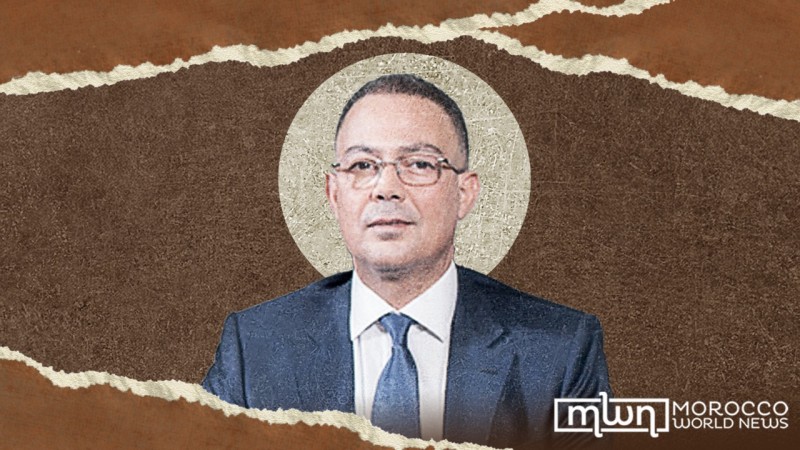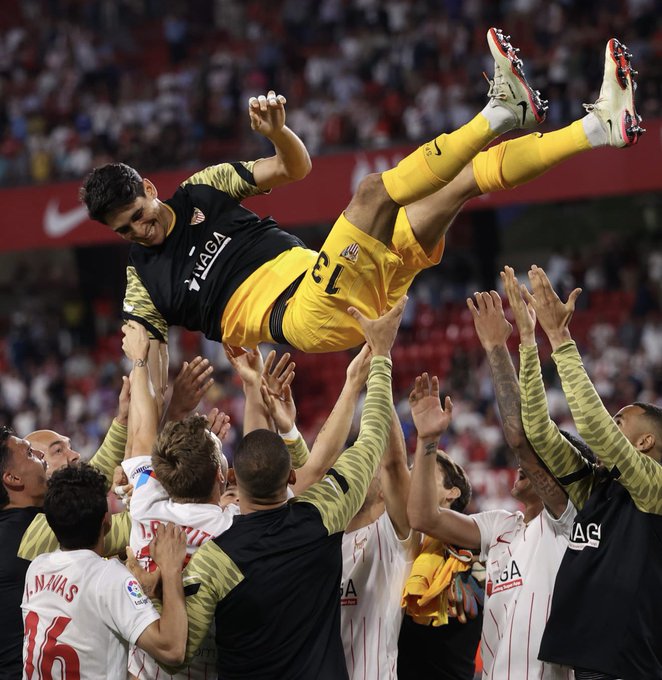Lekjaa was instrumental in Morocco’s 2022 footballing triumphs, but he continues to look to the future.
When Morocco’s football team defied all odds by topping their group at the Qatar World Cup and qualifying to the round of 16, the president of the Royal Moroccan Football Federation (FRMF) appeared simultaneously happy and unsatisfied.
As most football watchers — and even Moroccan fans and analysts — seemed to say that the Moroccan team’s group performance was a welcome surprise, Fouzi Lekjaa begged to slightly differ.
Yes, the performance was welcome, but there was nothing surprising or shocking about it, the FRMF chief suggested. Others believed — or hoped — that Morocco could do well in the knockout stage, but Lekjaa knew the team could and should do much better. With many pundits favoring Spain to beat Morocco in the round of 16, Lekjaa beamed in an interview that the Atlas Lions have “the potential to compete with anyone.”
Over the team’s next few games, Lekjaa’s words would prove true. The team defeated Spain on penalty kicks after a 120-minute grueling and edgy match, progressing to the quarter-finals for the first time in its history. With a star-suffused Portuguese team waiting in the quarter-finals, the FRMF remained adamant that Morocco could stun their European opponents. And that, ultimately, this being Morocco’s moment to lift Africa’s quarter-final curse, he was confident Morocco would seize it.
And while Morocco’s campaign may have been ended by France in the semi-finals, and while the Atlas Lions may have failed to snatch the bronze medal during their third-place game with Croatia, they have largely achieved what has long been Lekjaa’s goal: put Moroccan football in the global spotlight and earn African football the world’s respect.
Of course, credit for the Atlas Lions’ triumphs cannot be given to one person. Head coach Walid Regragui, players like Yassine Bounou and Sofyan Amrabat, and the team’s technical and medical staff all helped throughout the historic run.
But Lekjaa, who has also been member of FIFA’s executive council since 2021, has been duly celebrated as the orchestrator of the advancement of Moroccan football and the plaudits and respect it has earned of late. While talents on the pitch and the coaching staff’s vision and tactical nous were instrumental in Morocco’s exploits, many have argued, the Atlas Lions’ success story would not have been possible without the reforms the Moroccan federation has witnessed under Lekjaa.
With his team’s sustained quest for Moroccan talents in the diaspora, the recent colossal investments in the national football league and in sporting infrastructure such world-class stadiums and a well-respected football academy, Lekjaa’s leadership has made Moroccan football a leader in Africa and a force to reckon with on the world stage.
It is thus in recognition of his revolutionary leadership at the helm of the FRMF, especially the last-minute, well-timed decision to appoint an inspired coach ahead of the World Cup, that Morocco World News is choosing Lekjaa as one of this year’s most important personalities.
Education and career
Lekjaa was born in Berkane in 1970, where he finished his education before leaving for Rabat to join the Hassan II Agronomic and Veterinary Institute, where he obtained a degree as an agricultural engineer.
He then studied at the National School of Administration in Casablanca and worked at the Ministry of Finance as well as the Ministry of Agriculture. He has been described as the youngest to ever hold the position of budget director in the Finance ministry’s history.
In October 2021, Lekjaa was named as Minister Delegate to the Minister of Finance, responsible for the Budget, as part of Aziz Akhannouch’s government, currently in power.
Career in football
While he has occupied numerous high-profile posts in Morocco’s government, Lekjaa is perhaps best known for his transformative contributions to the country’s football scene.
Having grown up a supporter of his local club, Renaissance Sportive de Berkane (RSB), Lekjaa was appointed president of the club in 2009, while he held another job as a civil servant.
In 2012, RS Berkane rejoined the Moroccan top-flight league for the first time since the 80s, and reached the Throne Cup’s final in 2014, for the first time since 1986.
Since then, the club has been crowned champions of the Throne Cup two times, in 2018 and 2022.
They have also achieved unprecedented continental success, reaching the final of the CAF Confederation Cup three times, winning the title in 2020 and 2022. They also won the most recent CAF Super Cup in 2022, after defeating their fellow Moroccans in Wydad Casablanca.
In 2014, Lekjaa succeeded Ali Fassi Fihri as President of the FRMF, the position he continues to hold today. During his time, Moroccan clubs have achieved success on the continental stage, winning three CAF Super Cup titles, two Champions’ League titles, and reaching five finals.
In 2022, the Super Cup title was contested by two Moroccan teams — with Wydad AC winning the continent’s Champions League while RS Berkane took home the Confederations Cup.
Morocco’s national football team also qualified for the 2018 Russia World Cup under Lekjaa’s presidency, although they could not make it past the group stage despite strong performances against Spain and Portugal.
In 2022, following trouble with players and disapproval from Morocco’s football fans, Bosnian manager Vahid Halilodzic was dismissed by FRMF only a few months before Morocco was set to participate in the World Cup finals.
In his place came Moroccan coach Walid Regragui, who went on to lead Morocco’s squad through a historic run that saw them reach the World Cup’s semi-finals. The decision to hire Regragui has been hailed by many as a step in the right direction of putting more trust in local talents.
Looking to the future
Morocco’s 2022 World Cup triumphs have been declared as just the beginning by some, and it certainly seems that Lekjaa is looking to the future as well.
Despite its World Cup bids being rejected before, Morocco will most likely bid again to host the 2030 World Cup. With Lekjaa joining FIFA’s Executive Council last year, this bid could see a better fate than the past ones.
If successful, Morocco would be the second African and Arab country to host the global competition. Lekjaa told the Associated Press earlier this month that Morocco is considering a joint bid with Spain and Portugal to show the world that the relationship between Morocco and its European neighbors is one “in which civilizations can meet and cultures meet.”
The Moroccan team’s performances at the 2022 tournament have only strengthened Morocco’s international reputation as a footballing nation with a history and passion for the sport, which should also serve well to strengthen its bid.
Many of the stars that led Morocco to the semi-finals in 2022 should still be playing in four years when the US, Canada, and Mexico host the competition, leading to hopes that they can maintain the same level or improve upon it in the future.
Regragui has already made it clear his aspirations are for the next World Cup, asserting that because the Atlas Lions have shown they can compete with the world’s best, Morocco lifting the trophy in 2026 is not a quixotic goal.
source/content: moroccoworldnews.com (headline edited)
____________

_____________
MOROCCO
